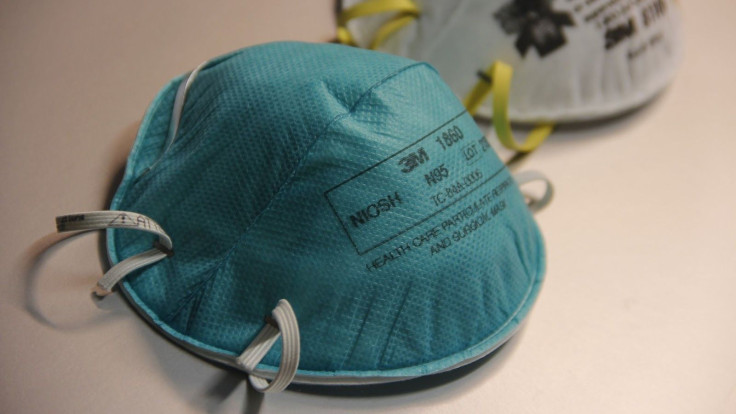Best Face Mask For Omicron Protection: How To Spot Fake N95, KN95 Masks
KEY POINTS
- Demand for N95 and KN95 masks has risen due to the rise of omicron
- Authorities have warned of counterfeit masks, which may not provide appropriate protection
- The CDC has come up with a list of approved masks and provided suggestions to help people avoid counterfeit ones
Demand for N95 certified face masks and their international equivalents has risen after doctors and medical experts recommended their use amid the ongoing surge of COVID-19 cases driven by the omicron variant. But potential mask buyers should be careful as counterfeits exist in the wild.
N95 masks — named after their ability to filter out at least 95% of airborne particles — are made of an electrostatic material that can filter both large droplets and the smaller aerosols that may contain the coronavirus, USA Today reported
The masks and their Chinese-made KN95 counterparts, certified by the National Institute for Occupational Safety and Health (NIOSH) and China, respectively, have seen higher demand recently due to the rise of omicron, a report by Fortune said.
Bona Fide Masks, an operator of a website that sells face coverings, claimed that demand for KN95s has almost tripled to about 5 million a month.
Another seller, WellBefore, saw an identical pattern with its sales figures for N95s and other high-quality masks between November and December.
"It's safe to say customers are opting for higher quality, fitted masks," WellBefore co-founder and CEO Shahzil Amin said.
However, counterfeit respirators have also flooded the market, with the Centers for Disease Control and Prevention (CDC) claiming that "upwards of 50, 60, 70%" of masks the agency tested in previous years were "substandard or fake."
More than 34 million counterfeit masks have been seized by the Customs and Border Patrol since the pandemic began, nearly 60% of which were seized last year, according to the Food and Drug Administration.
Counterfeit respirators "are falsely marketed and sold as being NIOSH-approved and may not be capable of providing appropriate respiratory protection," the CDC explained.
The agency has provided a list of NIOSH-approved N95 masks on its website, with information on each of the respirator's manufacturers, model number and filtration efficiency. The CDC also has a list of KN95 and other non-NIOSH-approved masks that have gone through assessment.
In general, respirators approved by NIOSH, which are not just limited to N95 masks, have an approval label on or within the packaging of the respirator, according to the CDC. They should also have an abbreviated approval on the mask itself.
According to the CDC, the signs that a respirator may be counterfeit are:
- No markings at all on the filtering facepiece respirator
- No approval (TC) number on filtering facepiece respirator or headband
- No NIOSH markings
- NIOSH spelled incorrectly
- Presence of decorative fabric or other decorative add-ons (e.g., sequins)
- Claims of approval for children (NIOSH does not approve any type of respiratory protection for children)
- Filtering facepiece respirator has ear loops instead of headbands
Potential mask buyers should also be wary of third-party marketplaces or unfamiliar websites, according to the CDC.
"If a listing claims to be 'legitimate' and 'genuine,' it likely is not," the agency said.
Additionally, buyers should look at a seller's transaction history and their products' reviews, the CDC suggested, among other things.
Tools such as Fakespot, which helps consumers filter out counterfeit products, can also aid in determining whether or not respirators sold online are authentic or not.

© Copyright IBTimes 2025. All rights reserved.





















